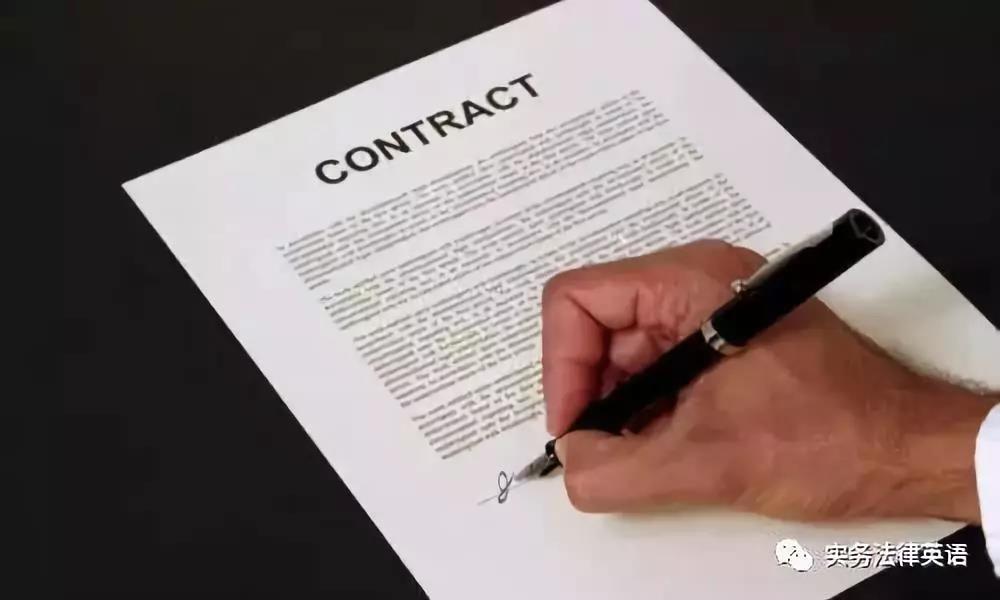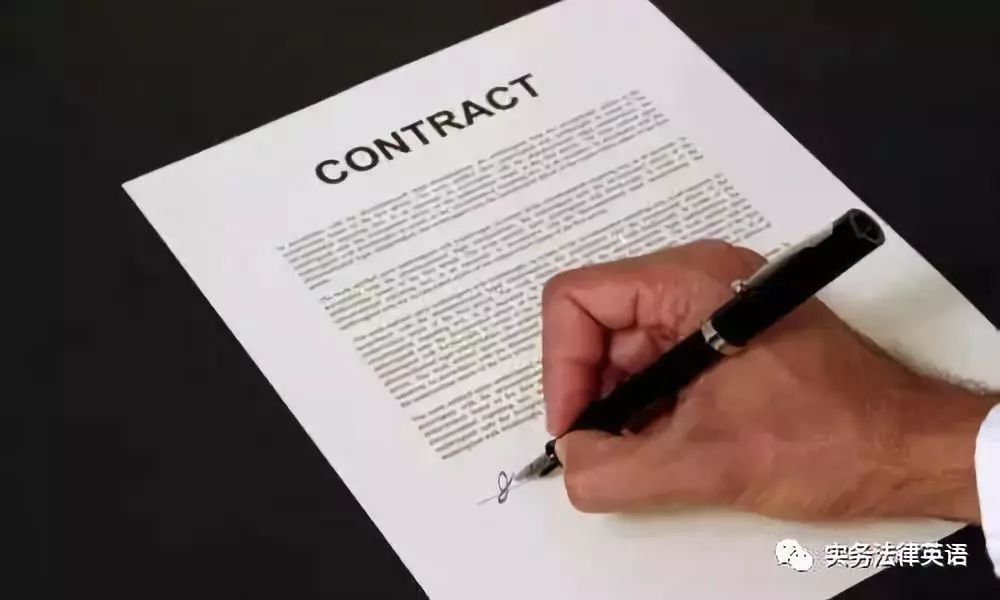
Privity Of Contract (合同相对性)
1. THE DOCTRINE OF PRIVITY
"Thedoctrine of privity means that a contract cannot, as a general rule, conferrights or impose obligations arising under it on any person except the partiesto it." (GH Treitel, The Law of Contract)
Thecommon law reasoned that:
1.Only a promisee may enforce the promise meaning that if the third party is nota promisee he is not privy to the contract. See:
DunlopTyre Co v Selfridge [1915] AC 847 - The plaintiffs sold tyres to Dew & Co,wholesale distributors, on terms that Dew would obtain an undertaking fromretailers that they should not sell below the plaintiffs' list price. Dew soldsome of the tyres to the defendants, who retailed them below list price. Theplaintiffs sought an injunction and damages. The action failed because althoughthere was a contract between the defendants and Dew, the plaintiffs were not aparty to it and "only a person who is a party to a contract can sue onit," (per Lord Haldane).
2.There is the principle that consideration must move from the promisee. See:
Tweddlev Atkinson (1861) 1 B&S 393 - The fathers of a husband and wife agreed inwriting that both should pay money to the husband, adding that the husbandshould have the power to sue them for the respective sums. The husband's claimagainst his wife's fathers' estate was dismissed, the court justifying thedecision largely because no consideration moved from the husband.
Thetwo principles of privity and consideration have become entwined but are stilldistinct.
2. EXCEPTIONS
Ifthe doctrine of privity was inflexibly applied it would cause considerableinjustice and inconvenience. Many exceptions to it have therefore beendeveloped.
A) COLLATERAL CONTRACTS
Acontract between two parties may be accompanied by a collateral contractbetween one of them and a third person relating to the same subject-matter. Forexample:
ShanklinPier v Detel Products [1951] 2 KB 854. The plaintiffs had employed contractorsto paint a pier. They told them to buy paint made by the defendants. Thedefendants had told them that the paint would last for seven years. It onlylasted for three months. The court decided that the plaintiffs could sue thedefendants on a collateral contract. They had provided consideration for thedefendants' promise by entering into an agreement with the contractors, whichentailed the purchase of the defendants' paint.
Theremust, however, be an intention to create a collateral contract before thatcontract can be formed
B) AGENCY
Theconcept of agency is an exception to the doctrine of privity in that an agentmay contract on behalf of his principal with a third party and form a bindingcontract between the principal and third party.
Forexample, a third party may be able to take the benefit of an exclusion clauseby proving that the party imposing the clause was acting as the agent of thethird party, thereby bringing the third party into a direct contractualrelationship with the plaintiff:
InScruttons Ltd v Midland Silicones Ltd [1962] AC 446, a bill of lading limitedthe liability of a shipping company to $500 per package. The defendantstevedores had contracted with the shipping company to unload the plaintiff'sgoods on the basis that they were to be covered by the exclusion clause in thebill of lading. The plaintiffs were ignorant of the contract between theshipping company and the stevedores. Owing to the stevedores negligence, thecargo was damaged and, when sued, they pleaded the limitation clause in thebill of lading. The House of Lords held that the stevedores could not rely onthe clause as there was no privity of contract between the plaintiffs anddefendants.
LordReid suggested that the stevedores could be brought into a contractualrelationship with the owner of the goods through the agency of the carrierprovided certain conditions were met: (1) that the bill of lading makes itclear that the stevedore is intended to be protected by the exclusion clausestherein. (2) that the bill of lading makes it clear that the carrier iscontracting as agent for the stevedore. (3) the carrier must have authorityfrom the stevedore to act as agent, or perhaps, later ratification by thestevedore would suffice. (4) consideration must move from the stevedore.
Allof the above conditions were satisfied in New Zealand Shipping v Satterthwaite(The Eurymedon) [1975] AC 154.
C) TRUSTS
Equitydeveloped a general exception to the doctrine of privity by use of the conceptof trust. A trust is an equitable obligation to hold property on behalf ofanother.
Thedevice was approved by the House of Lords in Les Affreteurs Reunis v LeopoldWalford [1919] AC 801, where a broker (C) negotiated a charterparty by whichthe shipowner (A) promised the charterer (B) to pay the broker a commission. Itwas held that B was trustee of this promise for C, who could thus enforce itagainst A.
However,the trust device has fallen into disuse because of the strict requirements ofconstituting a trust and most particularly that there should be a specificintention on the part of the person declaring the trust that it should be atrust.
D) RESTRICTIVE COVENANTS
Restrictivecovenants may, if certain conditions are satisfied, run with the land and bindpurchasers of it to observe the covenants for the benefit of adjoining owners.
Forexample, in Tulk v Moxhay (1848) 2 Ph 774, the plaintiff who owned severalhouses in Leicester Square sold the garden in the centre to Elms, whocovenanted that he would keep the gardens and railings in their presentcondition and continue to allow individuals to use the gardens. The land wassold to the defendants who knew of the restriction contained in the contractbetween the plaintiff and Elms. The defendant announced that he was going tobuild on the land, and the plaintiff, who still owned several adjacent houses,sought an injunction to restrain him from doing so. It was held that thecovenant would be enforced in equity against all subsequent purchasers withnotice.
E) STATUTES
Certainexceptions to the doctrine of privity have been created by statute, includingprice maintenance agreements; and certain contracts of insurance enforceable infavour of third parties. For example, under s148(4) of the Road Traffic Act1972, an injured party may recover compensation from an insurance company oncehe has obtained judgment against the insured person.
F) REMEDIES OF THE CONTRACTINGPARTY
Thequestion of the extent to which a contracting party may recover for losssustained by a third party who is intended to benefit from the contract wasraised in:
Jacksonv Horizon Holidays [1975] 1 WLR 1468. The plaintiff entered into a contract forhimself and his family. The holiday provided failed to comply with thedescription given by the defendants in a number of respects. The plaintiffrecovered damages and the defendants appealed against the amount. Lord DenningMR thought the amount awarded was excessive compensation for the plaintiffhimself, but he upheld the award on the ground that the plaintiff had made acontract for the benefit of himself and his family, and that he could recoverfor their loss as well as for his own.
However,in Woodar Investment Development v Wimpey Construction [1980] 1 WLR 277, theHouse of Lords rejected the basis on which Lord Denning had arrived at hisdecision, and reaffirmed the view that a contracting party cannot recoverdamages for the loss sustained by the third party. Their Lordships did notdissent from the actual decision in Jackson, which they felt could be supportedeither because the damages were awarded for the plaintiff's own loss; orbecause booking family holidays or ordering meals in restaurants calls forspecial treatment.



